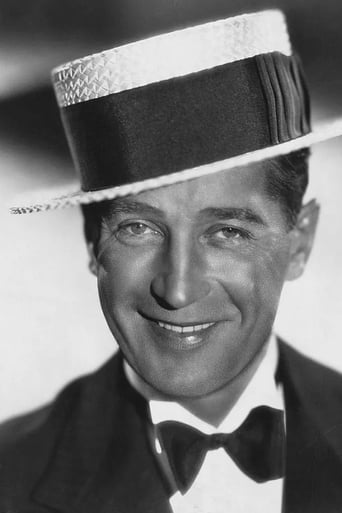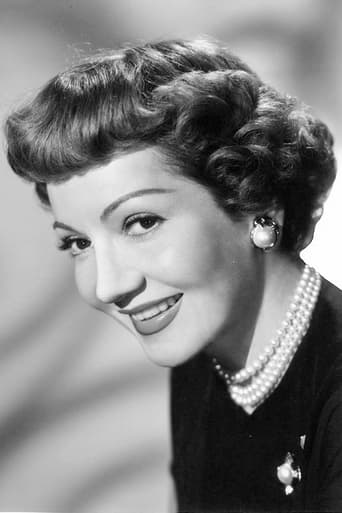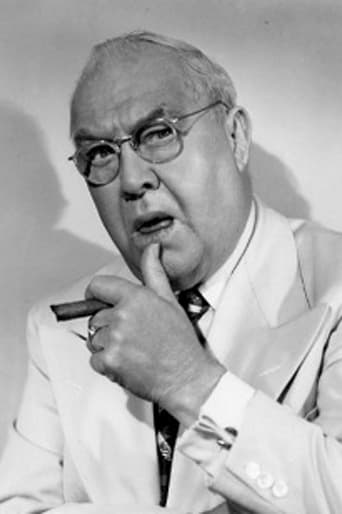CheerupSilver
Very Cool!!!
Console
best movie i've ever seen.
Philippa
All of these films share one commonality, that being a kind of emotional center that humanizes a cast of monsters.
Curt
Watching it is like watching the spectacle of a class clown at their best: you laugh at their jokes, instigate their defiance, and "ooooh" when they get in trouble.
JohnHowardReid
Songs (both Chevalier): "You Brought a New Kind of Love to Me" by Irving Kahal, Pierre Norman and Sammy Fain; "Livin' in the Sunlight, Lovin' in the Moonlight" by Al Lewis and Al Sherman. Sound recording: Ernest F. Zatorsky. Producer: Monta Bell.Copyright 6 May 1930 by Paramount Pictures. 6,984 feet. 77 minutes. New York opening at the Rialto: 17 May 1930. [Available on a 7/10 VintageFilmBuff DVD. Contemporary reviewers drew attention to poor sound in the Venice scenes, do don't blame VFB!COMMENT: A delight! Alas, in the English version, Chevalier has only two songs (there are four in the French version, La Grande Mer) and the charming Colbert does not have much of a role, but Maurice, of course, is a constant joy as he runs riot in a chewing gum factory and befriends a really entrancing little boarding-house slavey, Elaine Koch. Preston Sturges has contributed some witty dialogue, and production values are top-drawer. The movie opens promisingly in Venice with Chevalier as a singing gondolier. When he delivers Claudette back to her home away from home, however, our enjoyment slips as George Barbier rushes all over the set. The camera manages to follow him, but the sound mikes cannot. Fortunately, the directors evidently decided not to repeat this experiment. Once the action moves back to the U.S.A., Barbier stops running and the sound recording settles down.
mark.waltz
I can't think of a film that visibly shows an advertisement for ex-lax, that is, not until now. You won't need any to enjoy this delightful pre-code comedy with songs, an elegant romance featuring Maurice Chevalier and Claudette Colbert, two native French legends, in the first of two films they made together. Chevalier, then at the top of his romantic height, scored an Oscar nomination for this, and his easy going persona makes him truly likable. Back in the early 1980's, I saw a screening of 1934's "The Merry Widow" where 75 plus year old ladies cooed like school girls just by his very presence. Colbert, a French transplant at the age of 3, is ultra American chic as the daughter of an imperious wealthy industrialist (the equally portly George Barbier). She is first seen being serenaded by Chevalier to the lyrics of one of his biggest hits, "A New Kind of Love" (later spoofed by ALL of the Marx Brothers in "Monkey Business"), and you can see in those big eyes of hers everything she's thinking. As Colbert indicated in later years, there was more heat in the insinuations of sex than the actual deeds shown in movies from the 1960's on.Thanks to Colbert, the talented but broke Chevalier gets a job working at her father's factory, getting a room in a local boarding house. The unbilled actress playing the down to earth landlady ogles him just like the old ladies did at that screening I attended all those years ago. Nat Pendleton is very funny as the tough guy who is won over by Chevalier's down to earth manner. The plot line basically surrounds the differences in their class, other romantic obstacles that create unwarranted jealousies, and of course, their own egos. Chevalier finally impresses Barbier by inventing an alcohol flavored gum, adding more amusing complications. It's a simple story, played with charm, sophistication and humanity, with two beautiful stars who are equally as talented.
st-shot
Maurice Chevalier charms America and gets the bosses daughter in this early sound rom-com featuring a few of his songs along with his straw boater. Not as polished a film as his other early work with Lubitsch and Mamoulin, Chevalier still conveys his irresistible charm battling primitive early sound while exhibiting his exuberantly lush accent.Chewing gum magnet's daughter Barbara Billings has fallen heavy for her Venice guide Pierre Mirande but the xenophobic old man sees him as a gigolo looking for an angle to get at his empire. Billings is an abusive blow hard but his daughter has him wrapped around his finger so he devises with Barbara's American suitor a plan to take him to America and make life miserable for him. The indefatigable Pierre however wins over all those around him as well as come up with a gum that sends profits through the roof that in addition assists the prohibition campaign.Chevalier carries the picture while Claudette Colbert as Barbara offers up a touch more coquette than standard innocent abroad while old man Billings manically played by George Barbier is a bombastic chauvinistic bore given to shoving his wife. Hobart Henley's direction underwhelms while some comic dialogue ("Don't talk when I'm interrupting you.") is offered up by Preston Sturges but it remains Maurice's picture and his unchained joie di vivre that gives Across the Pond the life it has.
Alex da Silva
Pierre (Maurice Chevalier) is invited to work in the USA for Mr Billings's (George Barbier) chewing gum factory. Pierre wants to marry Mr Billings's daughter Barbara (Claudette Colbert). However, neither her father nor her fiancée, Ronnie (Frank Lyon) are too keen on this idea and they try to force him to return home. However, Pierre discovers a new flavour chewing-gum and is quickly embraced into the corporate world. How will Barbara respond....she can't stand the corporate world....The film contains a couple of good songs but that's it. The story drags and Claudette Colbert isn't given much to do. She has a funny line or two but I think that it is George Barbier who has the best role. The film is also in poor condition picture-wise and this brings it down overall. Not worth keeping onto.


